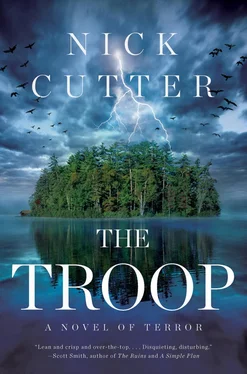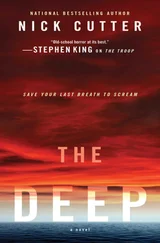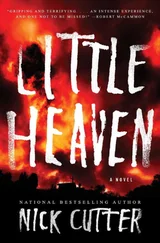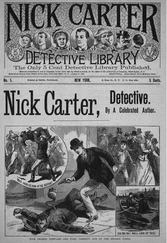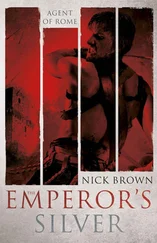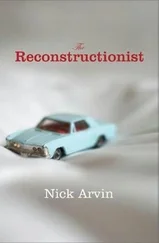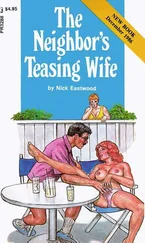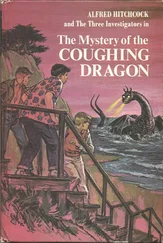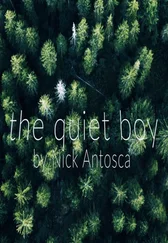He’d gripped it—the tips of his fingers pincering the hateful thing. For an instant it had thrashed fretfully between his fingertips… Ephraim was pretty sure, anyway. But he’d pulled too quickly. It squirted through his fingers. He’d reached again, desperately. Gone. He’d had his opportunity and lost it. It was safe inside him again.
“It gob abay, Shel,” Ephraim said with despondent, childlike petulancy—marble-mouthing his words on account of the warm syrup in his mouth.
“You have to keep trying . Or are you weak … a sucky-baby, like everyone says? ”
What? Who’d have the balls to— nobody said that. Did they? He pictured them on the school yard—a gaggle of boys casting glances over their shoulders, sneering and laughing. He saw Max laughing at him. Rage tightened the flesh of his forehead. Something thorny and superheated surged against his skull, threatening to shatter through.
“I hear it all the time, friend. At school, behind the utility shed where the big boys smoke cigarettes. They say Ephraim Elliot acts tough, but he’s a pussy. He’s a cuckoo — his mommy makes him see a shrink because his head’s all messed up…”
Ephraim’s gaze fell upon his stomach. His shirt had ridden up to expose a slip of taut flesh. It rippled as something surged beneath it.
Maddening, mocking, playing peek-a-boo.
Ephraim picked the knife up. The blade was still keen.
How deep could he cut?
It all depended. How deep did his enemy lie?
What would you rather?
________
From Troop 52:
Legacy of the Modified Hydatid
(AS PUBLISHED IN GQ MAGAZINE) BY CHRIS PACKER:
“BIG” JEFF JENKS, as the locals call him, isn’t so big anymore.
The events on Falstaff Island shrunk him. He admits as much himself—and from a man like Jenks, still possessed of a larger-than-life self-image, this is a big admission indeed.
“I stopped eating for a while there,” he tells me as we take a spin in his cruiser down the sedate streets of North Point. “The appetite just wasn’t there. Used to be before a shift I’d head down to Sparky’s Diner and mow through their breakfast platter: eggs, rashers of bacon, pancakes, toast, plenty of coffee. And this was after my wife had made breakfast at home.”
Nowadays Jenks’s frame might be charitably described as utilitarian—although the word threadbare comes to mind. He floats inside his old police uniform. His arms sticking out of the XXL shirtsleeves put me in the mind of a child trying on his father’s clothing. When he leans over to hawk phlegm out the window I see the fresh holes he’s punched into his old belt so that it cinches his dwarfed waistline.
“It was the toughest thing I ever had to do,” he says distantly. “Just sit on my hands and wait. That’s not me , right? When something needs doing I’d always stepped up to get it done. Around here my word is law . But now here were these MPs and high army muckety-mucks saying I couldn’t go get my own damn kid.” He lapses into silence before saying: “My love can’t save him. I remember thinking that. I think all of us—the parents, y’know?—were thinking the same. All the love in your body, every ounce of will you possess… matters nothing at all.”
Though he admits the decision to steal Calvin Walmack’s boat was a foolish one, he stands by it.
“You’re telling me that most every responsible, loving father on God’s green acre wouldn’t have done the same? Now what the military won’t admit and never will, I’ll bet, is that those MPs beat me and Reggie pretty bad after they ran us down.”
He pulls up his shirt to show me a long roping scar running up his hips to the bottom of his rib cage.
“They beat me so hard with batons that they busted the skin wide open. Right there on the deck of the boat. They didn’t say nothing while they were at it, either. Just a long, silent beating. Reg got it just about as bad. We didn’t think to fight back. The MPs all had guns.” His voice drops to an agonized whisper. “Fact is, I’d never been beat anything near that. Not by anyone, ever . I was always the one doling that kind of stuff out… but only if you forced my hand.”
We drive up rows of old Cape Cods, their exteriors permanently whitened by the salt spray that blows over the bluffs. It’s a beautiful town. Anne of Green Gables pretty. The sort of place Norman Rockwell would paint.
“The official report is, nobody knows exactly what happened to my son,” Jenks says. “But I’ll tell you, that boy was a survivor. That’s the way I raised him. You can’t be Jeff Jenks’s kid and not be a tough sonofabitch. But then, what you’re talking about—the enemy, I guess you’d call it. Them . I mean, how can you fight something like that?”
He drums his fingers on the wheel. A big vein ticks up the side of his neck.
“They never found him. Never could bring my son’s body home for us to bury. Just to give me and my wife some closure, right? Kent’s still technically considered ‘missing’—that’s how it is in the books. And I’ll tell you, man, missing can be worse than dead. Missing is like a book with the last few pages torn out or a movie missing the final reel. Missing means you’ll never really know how it ends.”
He looks as though he might break down but pulls himself back together.
“So I guess I’ll never really know,” he says after a while. “There’s not a lot of evidence to go by, is there? But I’ll tell you this: my boy wouldn’t go down without a fight. I’d bet everything I own on that.”

32
KENT WASa beast. He could kill at will.
For a while there, he’d thought differently. When the other boys had left him in the cellar— abandoned him like a whipped dog—he’d been scared. So, so scared.
He’d felt his strength seeping away like the air from a leaky tire.
The things that lived in him now were awesomely hungry.
He knew they were there. He’d lain on the dirt floor and felt them sliding around inside him. A soft whisper came to his ears: a million snakes slithering across frictionless sand.
The thought occurred to him: he could die here. It didn’t quite seem possible. He was only fourteen. Didn’t God look out for drunks and children? That’s what his father always said.
At some point, Shelley had come to the cellar doors to feed him. The peanut brittle did nothing to kill his appetite. But whatever Shelley had given him next—tough and rubbery on the exterior, bursting with warm softness within—now that made him feel great.
Still, Shelley had been a bad boy. Shelley had promised meat . And Kent would soon get what he was owed.
Fresh energy percolated through him. His blood zitzed with adrenaline. He felt as though he’d eaten a raw steak— Shelley should have brought me steak; you should never go back on your word, Shelley you scumbag —as he inhaled the scent of blood that was not his own.
Kent was powerful. Oh yes .
He stood in the cellar, shoulders hunched. He could feel new bones growing up his back. They clawed through muscle and tendon before breaking through the skin on both shoulders. It was perfectly painless: he imagined this was what a caterpillar felt like when it emerged from its chrysalis as a beautiful butterfly.
Читать дальше
